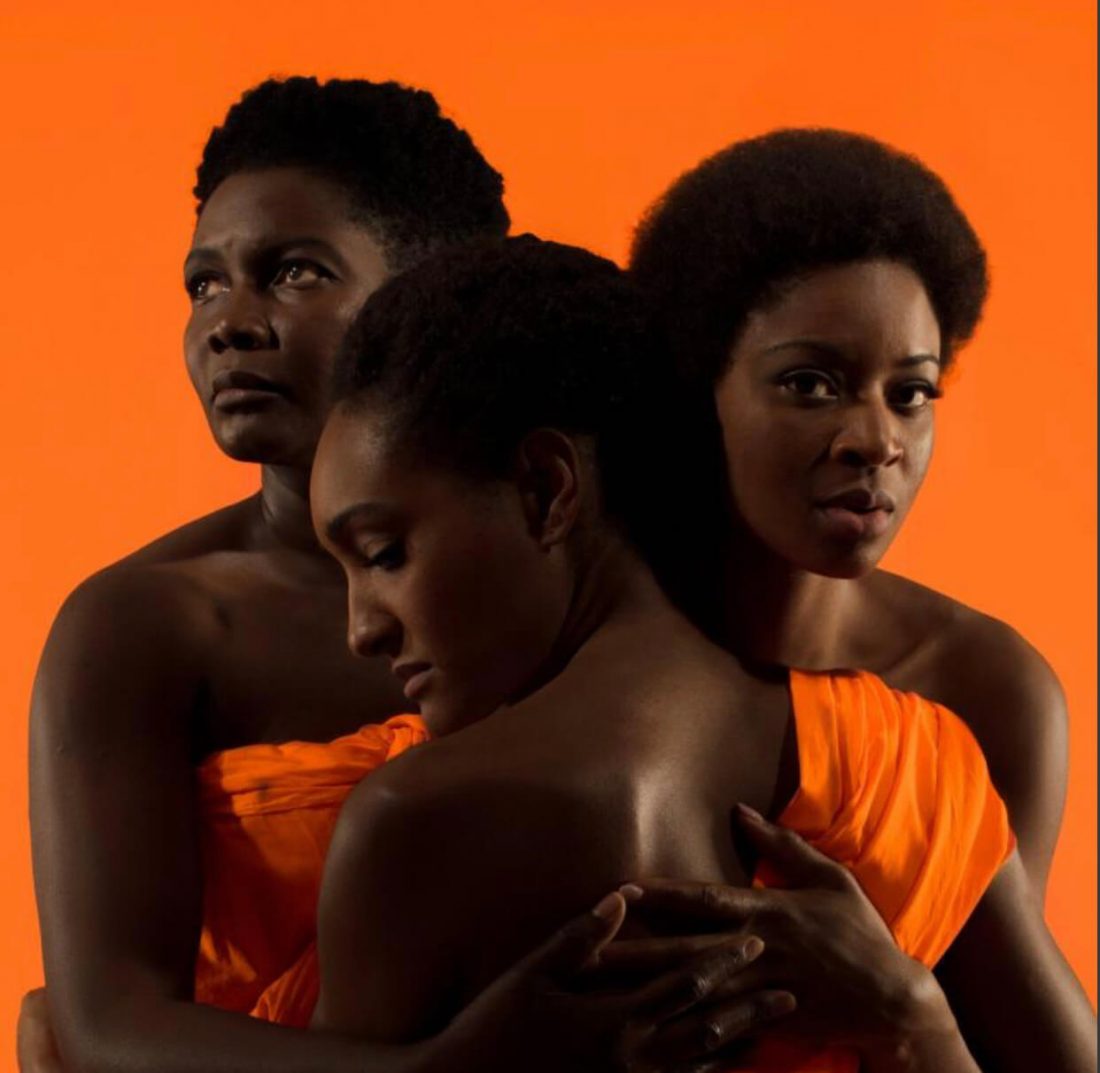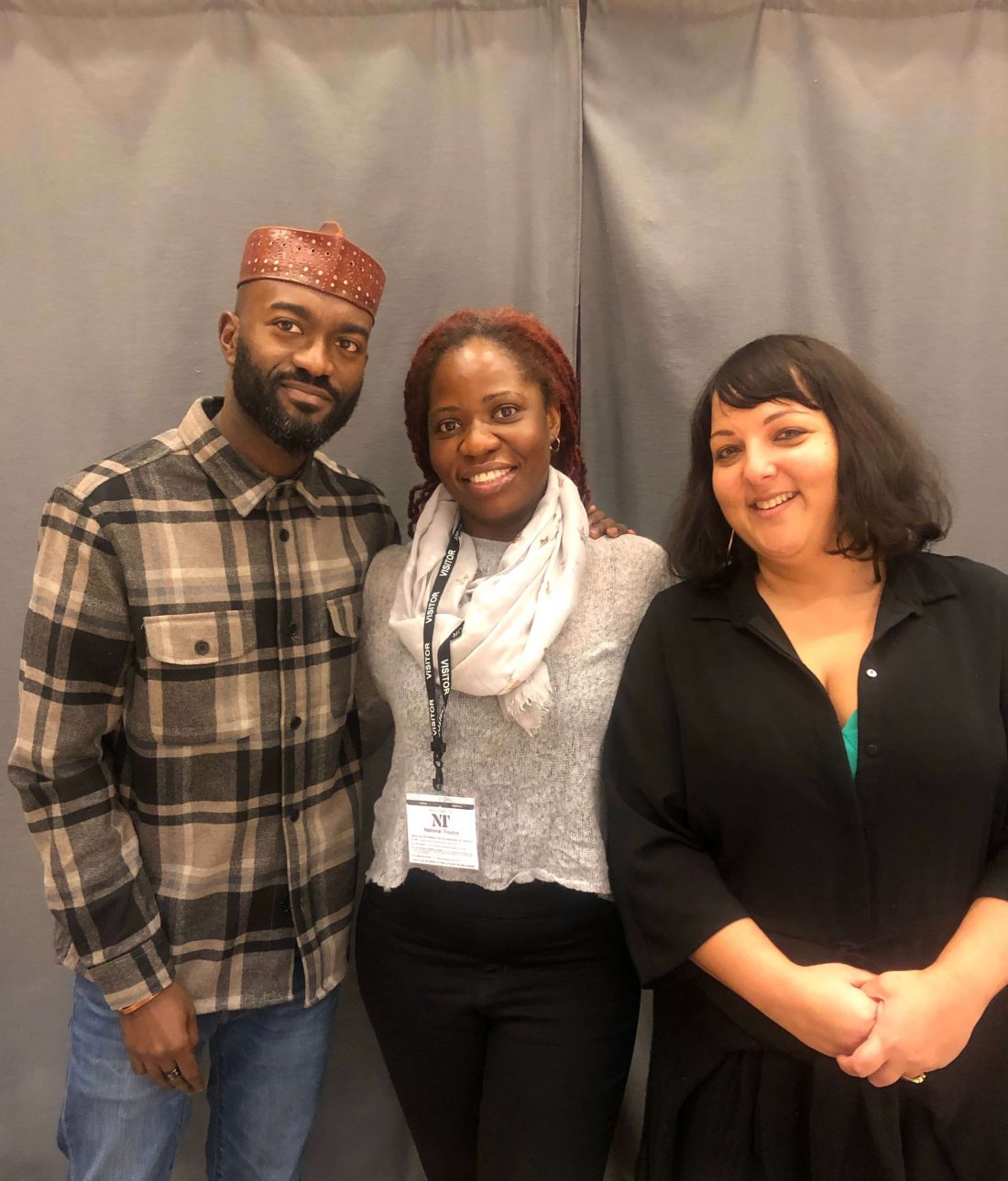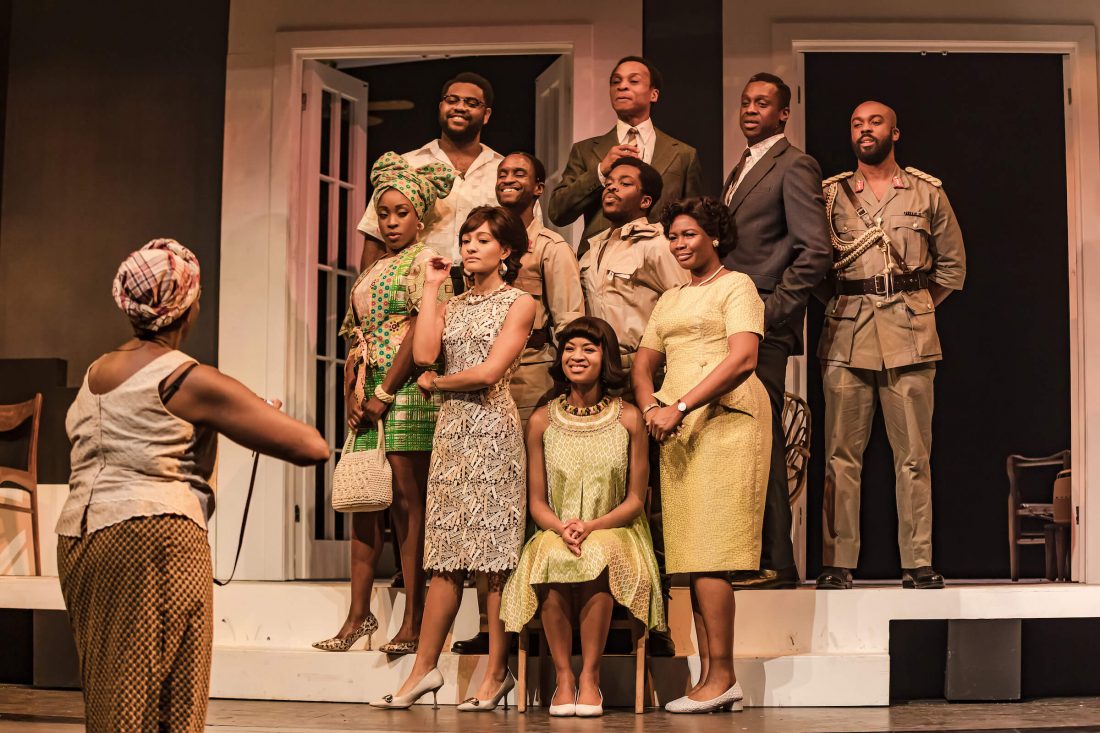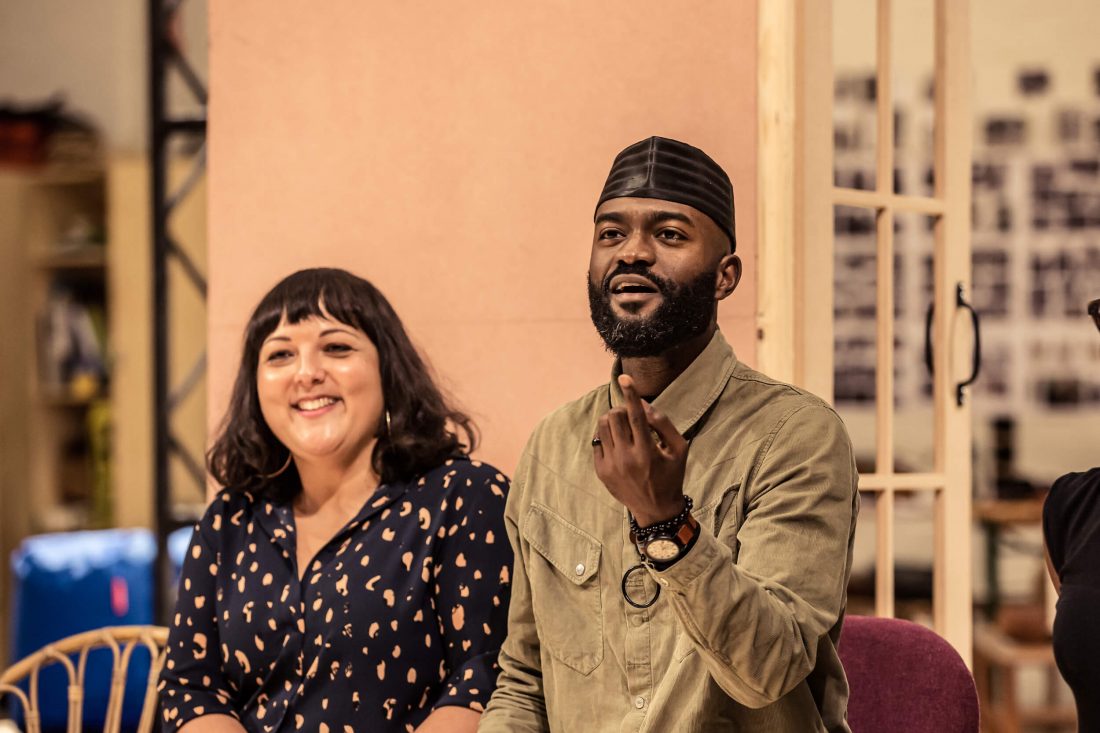Following his smash hit Barbershop Chronicles, Inua Ellams brings us a brand-new play called Three Sisters, a heart-breaking retelling of Chekhov’s classic, currently showing at the National Theatre in London, until 19 February 2020.

Inua’s bold new production sees Chekhov’s iconic characters relocated to 1967’s Owerri, Nigeria where the country is poised on the brink of the Nigerian Civil War – a conflict which saw the eastern region of Nigeria temporarily declared as a new republic called Biafra.
Inua’s play gives a gloriously rich retelling of this rarely explored time in Nigerian history through the experiences of the Three Sisters, Lolo, Nne Chukwu and Udo, who while still grieving for the loss of their father, must grapple the repercussions of being caught in the cross hairs of the Biafran War. Fuelled by foreign intervention, the conflict encroaches on their provincial village and the sisters previously sheltered life is disrupted catastrophically.
Ahead of the play’s release, we were invited to a press briefing with the writer (Inua Ellams), the director (Nadia Fall) and the actresses who played the sisters Sarah Niles, Racheal Ofori and Anni Domingo, to find out more about the play.

Below, we share edited highlights from Inua about why he chose the Biafran War as the backdrop for his story, who he based his characters on and his efforts on making theatre more accessible to a wider audience.
The story is about the lives of these three sisters and the soldiers that came through and impacted their lives.
Tell us about the setting for your version of Three Sisters?
The play spans from when the civil war broke out in 1967 until 10 days after the war ended on 15 January 1970. It’s about three sisters who are stranded in their family home in Owerri, which was one of the capitals of Biafra. The story is about the lives of these three sisters and the soldiers that came through and impacted their lives.
Why did you choose to adapt Three Sisters and how much did you deconstruct the original?
I chose Three Sisters because I have three sisters. A lot of elements of the characters are based on my three sisters. I deconstructed Chekhov’s play, but tried to create extremely close parallels with Igbo culture and traditions and people. For example, I gave the names of the three sisters parallel versions in Igbo.
I changed the intentions of the narrative slightly. Chekhov’s play was about existentialism, and mine is about the search for purpose, which are similar things, but not quite the same. So, there’s light shades and tones of the two versions, but mine is deeply Nigerian and deeply Biafran. I also raised the stakes in my version. Chekhov’s was set four years before the Russian Revolution, so his features this sense of impending doom or conflict, but mine goes further and is actually set during the Biafran War, the temperatures are raised.
She has to look after everyone. She regrets her position sometimes but understands why she has to do the things she has to do.
Give us a brief insight into the characters of the sisters
The youngest sister is Udo (played by Racheal Ofori). She is the one who is most nostalgic of Lagos. She’s young, she misses the shops, the boutiques. She has a flirtatious and youthful energy, which only really came out in the cosmopolitan city of Lagos, and she’s longing for that. She’s also not really invested in relationships, but there’s a guy who runs around the play trying to marry her, and she sort of resists him initially, but things change towards the end of the play. She’s very sharp, feisty, but she’s also very lovely and sisterly.
The middle sister, Nma (played by Anni Domingo) is uncomfortable in her marriage and she bucks against the traditions and the role she’s expected to play within her marriage. What she goes through and her conflicts are probably closer with contemporary feminism, with regard to her relationships and the role she’s supposed to play, and she bucks against that.
Lolo (played by Sarah Niles) the older sister, is probably the most intelligent person in the play. She is an educator, she knows about politics, what underlines political motivation and movements, and she questions everyone within the play. As the older child, she sort of has to look after her siblings, she becomes a secondary mother, and in doing so she never really got to be a child, and that weighs heavy on her as the Nigerians get closer and closer. She has to look after everyone. She regrets her position sometimes but understands why she has to do the things she has to do.

In the Chekhov play, there is a brother called Andre. Did you write yourself into the play?
Yes, the brother in my play is called Dimgba, and Dimgba the name means sort of like a strong man, like a fighter and is related to Andre which means Andrew. But, he’s also a little bit of a jack-of-all-trades a master of none, he runs around doing a little bit of everything, which I definitely do [laughs]. So, there’s very clear parallels between myself and Dimgba, and how the sisters’ sort of make fun of him, just as my sisters’ continually make fun of me. So definitely there are parallels between my family dynamic and the way they all relate to each other.
There are parallels between my family dynamic and the way they all relate to each other.
Why do you write?
I write because I want to leave the world in a better place than it was when I entered it if that makes sense? And it’s slightly arrogant to think anyone can do so, because the world is shark infested waters at best of times but yeah, that’s what I aim to do. Just to try to make life a little bit better, but also to try and clarify things that I do not understand, and to dramatize the attempt at clarification.
How would you describe the contemporary UK theatre scene, is anything changing at the moment?
I think so. I think Black British theatre definitely occupies more space than it ever did before. I think the stories we write are definitely more nuanced, and in that true art of who we are, who we think we are. I think that can benefit the world at large.

Photo by The Other Richard.
I think something like 50% of the people who came to the play, it was their first time going to any theatre
Do you think that theatre is becoming more accessible?
I think so. I think prices are changing, the impenetrable perception of these spaces is definitely changing. There are some really great points of entry for people of various backgrounds, and a few of my peers and I are really invested in making sure people from all walks of life can access theatre. One of the reasons why we categorically refused to let Barbershop Chronicles go to the West End was because we knew what price bracket the tickets would be. So, we took it to The Roundhouse who I have a long relationship with, and made sure tickets were accessible. I think something like 50% of the people who came to the play, it was their first time going to any theatre, and I think there were over 50% of people of colour or something stupid like that, so we definitely broke some records. We hope to do the same thing with Three Sisters.
Three Sisters is currently showing at Lyttleton Theatre at the National Theatre in South Bank until 19 February 2020.
Comments have been edited for clarity












